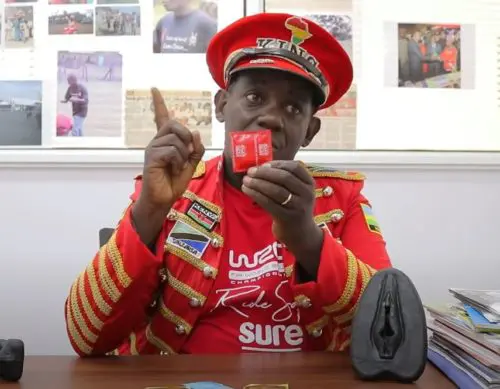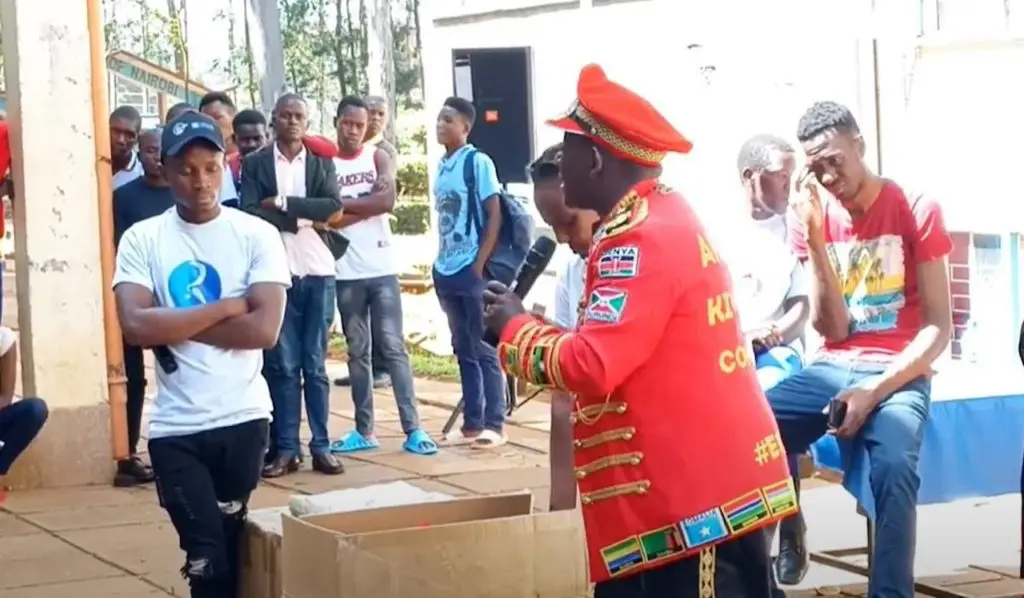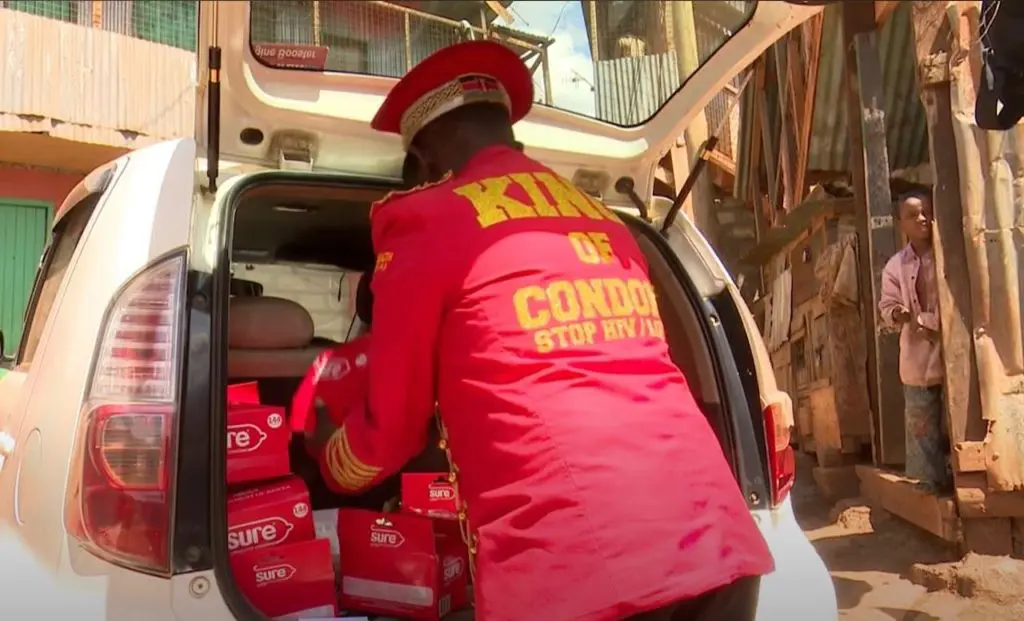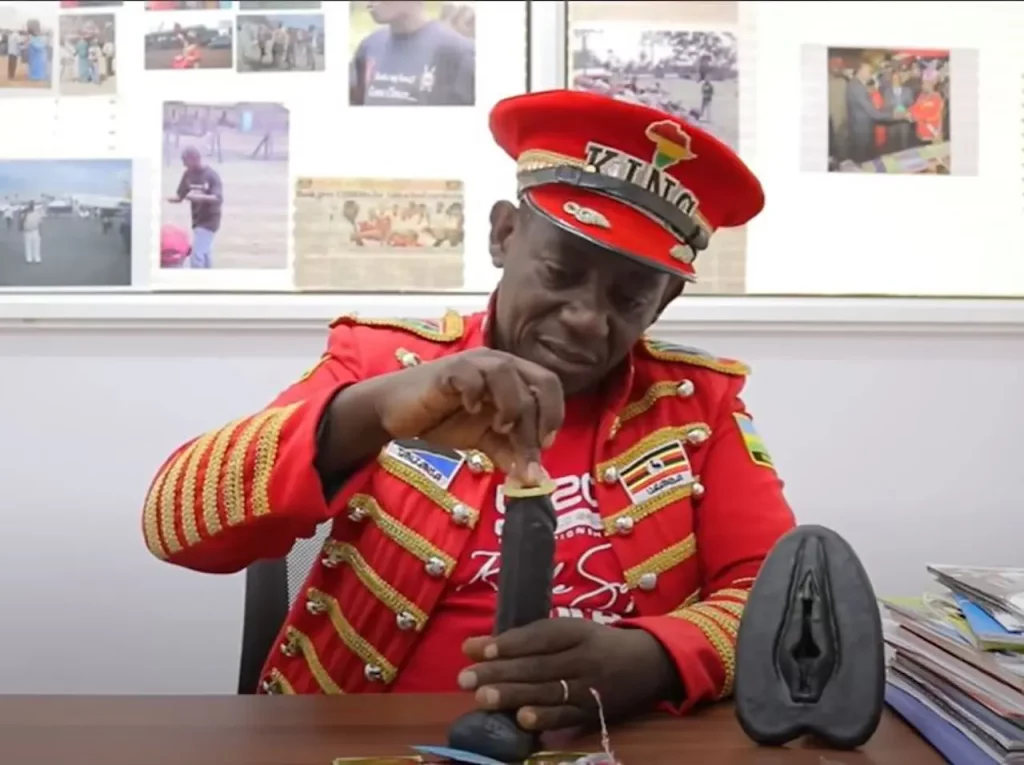The King of Condoms in Kenya tackles the stigma of HIV
They alienated me from my own people. I had no one around me to offer guidance or support. They no longer saw me as a person. I turned into a ghost, a hideous symbol of my disease. Something had to change.
- 2 years ago
January 21, 2023

NAIROBI, Kenya – They call me the “King of Condoms” in Africa. After watching a dear friend die from HIV, then facing my own diagnosis, I set out to do something – to shatter the stigma of this disease.
In African culture, conversations about sex and sex education remain taboo. People often stop listening or close themselves off completely to an honest exchange of ideas. Growing up in Thika, not far from the capital of Kenya, I wanted people to practice safe sex, and learn about sexually transmitted diseases. I began supplying free condoms to anyone in need.
Read more stories from Kenya at Orato World News
They put me on the “list of shame” for suspected HIV
In the early 1990s, I lost a very close friend. Rumors spread all over town, claiming she died from complications with HIV. Stigma overshadowed the disease, and the very mention of it disgusted people.
If you had any association with those three letters, people ostracized you. Nobody wanted to be around anyone suspected of living with the virus. I didn’t realize how bad it was until my friend’s funeral.
She had a large circle of friends. The loveliest person, she always smiled. She had no enemies and always filled the room with love and kindness. Yet, there I stood at her funeral with barely a soul in the room.
That day, I saw the worst side of people. Rather than let us mourn her, the community read a list of names – people they suspected she slept with. They read the names out loud in public. In my village, they called it the list of shame. That list contained my own name.
People began avoiding me and calling me names behind my back. I lost my friends very fast. Everyone believed I had HIV and posed a danger to others. They refused to look at me, let alone be in a room with me. They alienated me from my own people.
I had no one around me to offer guidance or support. They no longer saw me as a person. I turned into a ghost, a hideous symbol of my disease. Something had to change.
Becoming the King of Condoms
I thought of my dear friend, and others who suffered as she did. People have worth that outweighs the stigma of HIV. I decided right then to begin an educational journey. My goal remains educating and demystifying myths surrounding HIV, AIDs, and transmission.
My first order of business: the distribution of free condoms in public spaces and institutions such as universities. I wanted to be everywhere. The road would be hard. I faced a lot of rejection and backlash from people who believed I had malicious intentions. Then, in 2014, a student leader invited me to attend a freshmen party at Kenyatta University to supply free condoms.
During the event, he brought me on stage and introduced me as the King of Condoms. The nickname quickly spread, and it ultimately stuck. Those same students designed my red and gold garments, which I wear from Monday to Saturday as part of my uniform.

The biggest supporters of my work as the King of Condoms include my wife and my mother. They stood by me through it all: when religious leaders fought me, and when communities labeled me “immoral.” They understood my aim and why it mattered to me.
On one occasion, the government sponsored my trip to Thailand where I met their “Prince of Condoms.” In Thailand they talked about sex and safe practices so openly. It surprised me, and I discovered things we still need to embrace in Africa. Sex should never feel so shameful.
Practicing safe sex should be a right, not a privilege
The country eventually began giving out free condoms, but people remained skeptical. Eventually, distribution climbed from one million condoms in 2014 to over 280 million in 2022. Though the progress feels slow, we see people opening up.
The National AIDs and STI Control Program (NASCOP) also provides support in educating more people every year. Africa leads with 71 percent of the world’s total HIV infections. In Kenya alone, we record over 35,000 new HIV infections and over 22,000 deaths as a result of AIDs annually.
People in low-income areas remain the most affected. I focus on those areas, offering my help to institutions, workplaces, and sex workers.

Today, I supply hundreds of thousands of condoms per day. In the Nairobi city square alone you find a population of over 160,000 sex workers. I make sure they are protecting themselves and their clients. I mainly fund my project except when the government chips in.
We need to realize; people will have sex no matter what. Whether we let them do it safely or not is the only variable. Without protection, they risk unwanted pregnancies, complications, and sexually transmitted diseases. Many believe we encourage young people to have sex early.
I assert that being curious about sex is human nature. Why deny sex education and free condoms? We cannot prevent people from having sex; but sending out negative messages only increases stigma and shame. It helps no one. Our focus needs to remain on healing: individually and collectively.
























































































































































































































































































































































